 W
WA mother is the female parent of a child. Mothers are women who inhabit or perform the role of bearing some relation to their children, who may or may not be their biological offspring. Thus, dependent on the context, women can be considered mothers by virtue of having given birth, by raising their child(ren), supplying their ovum for fertilisation, or some combination thereof. Such conditions provide a way of delineating the concept of motherhood, or the state of being a mother. Women who meet the third and first categories usually fall under the terms 'birth mother' or 'biological mother', regardless of whether the individual in question goes on to parent their child. Accordingly, a woman who meets only the second condition may be considered an adoptive mother, and those who meet only the first or only the third a surrogacy mother.
 W
W"A Cradle Song" is a poem written by William Blake in 1789, as part of his book Songs of Innocence.
 W
WThe Encyclopedia of Motherhood is a comprehensive, specialized encyclopedia of all issues relevant to motherhood, to be published by SAGE Publications in three volumes in April 2010. Its General Editor is Andrea O'Reilly.
 W
WIn the Motherhood is an American television sitcom that debuted on ABC as a midseason entry and ran from March 26 to June 25, 2009. The series was produced by ABC Studios in association with Spud TV and Mindshare Entertainment.
 W
WLying-in is the term given to the European forms of postpartum confinement, the traditional practice involving long bed rest before and after giving birth. The term and the practice it describes are old-fashioned or archaic, but it used to be considered an essential component of the postpartum period, even if there were no medical complications during childbirth.
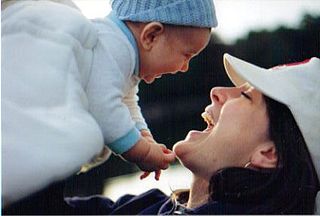 W
WA maternal bond is the relationship between a mother and her child. While typically associated with pregnancy and childbirth, a maternal bond may also develop in cases where the child is unrelated, such as an adoption.
 W
WMaternal sensitivity is a mother's ability to perceive and infer the meaning behind her infant's behavioural signals, and to respond to them promptly and appropriately. Maternal sensitivity affects child development at all stages through life, from infancy, all the way to adulthood. In general, more sensitive mothers have healthier, more socially and cognitively developed children than those who are not as sensitive. Also, maternal sensitivity has been found to affect the person psychologically even as an adult. Adults who experienced high maternal sensitivity during their childhood were found to be more secure than those who experienced less sensitive mothers. Once the adult becomes a parent themselves, their own understanding of maternal sensitivity will affect their own children's development. Some research suggests that adult mothers display more maternal sensitivity than adolescent mothers who may in turn have children with a lower IQ and reading level than children of adult mothers.
 W
WMatriarchy is a social system in which females hold the primary power positions in roles of political leadership, moral authority, social privilege and control of property. While those definitions apply in general English, definitions specific to the disciplines of anthropology and feminism differ in some respects. Most anthropologists hold that there are no known anthropological societies that are unambiguously matriarchal, but some authors believe exceptions may exist currently or may have existed in the past.
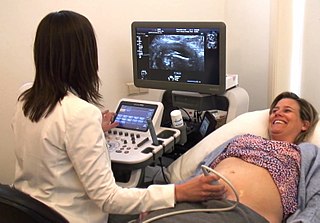 W
WMidwifery is the health science and health profession that deals with pregnancy, childbirth, and the postpartum period, in addition to the sexual and reproductive health of women throughout their lives. In many countries, midwifery is a medical profession. A professional in midwifery is known as a midwife.
 W
WStories of miraculous births often include conceptions by miraculous circumstances and features such as intervention by a deity, supernatural elements, astronomical signs, hardship or, in the case of some mythologies, complex plots related to creation.
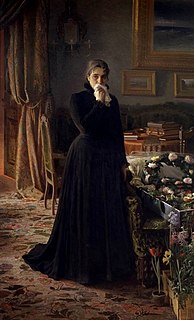 W
WMiscarriage and grief are both an event and subsequent process of grieving that develops in response to a miscarriage. Almost all those experiencing a miscarriage experience grief. This event is often considered to be identical to the loss of a child and has been described as traumatic. "Devastation" is another descriptor of miscarriage. Grief differs from the emotion sadness. Sadness is an emotion along with grief, on the other hand, is a response to the loss of the bond or affection was formed and is a process rather than one single emotional response. Grief is not equivalent to depression. Grief also has physical, cognitive, behavioral, social, cultural, and philosophical dimensions. Bereavement and mourning refer to the ongoing state of loss, and grief is the reaction to that loss. Emotional responses may be bitterness, anxiety, anger, surprise, fear, and disgust and blaming others; these responses may persist for months. Self-esteem can be diminished as another response to miscarriage. Not only does miscarriage tend to be a traumatic event, women describe their treatment afterwards to be worse than the miscarriage itself.
 W
WMothering is a magazine that promotes natural mothering practices and attachment parenting. It began publishing in 1976. The headquarters is in Santa Fe, New Mexico.
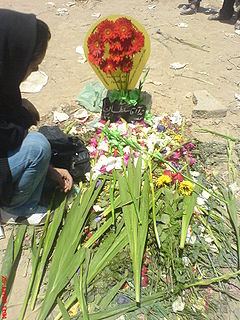 W
WThe Mourning Mothers are a group of Iranian women whose spouses or children were killed by government agents in the protests following the disputed Iranian presidential election of 2009. The group also includes relatives of victims of earlier human rights abuses, including mass executions during the 1980s. The principal demand of the Mourning Mothers is government accountability for the deaths, arrests, and disappearances of their children. The mothers meet on Saturdays in Laleh Park in Tehran, and are often chased by the police and arrested.
 W
WThe Museum of Motherhood, also known as M.O.M, was conceived in 2003 and first opened to the public on Main St. in Dobbs Ferry, NY with a small exhibition gallery. The focus of the museum is to explore and understand American mothers, fathers, and families. M.O.M. was founded under the non-profit Motherhood Foundation Inc. 501c3, and has participated in events throughout New York state, including a village-wide display called "The Moms of Rock" in Seneca Falls, home of the Suffragette Movement (2010), as well as family activities each year at the Museum Mile Festival in New York City.
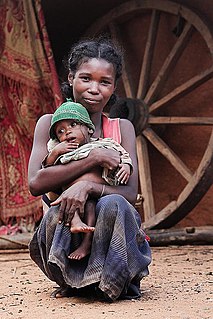 W
WA parent is a caregiver of the offspring in their own species. In humans, a parent is the caretaker of a child. A biological parent is a person whose gamete resulted in a child, a male through the sperm, and a female through the ovum. Biological parents are first-degree relatives and have 50% genetic meet. A female can also become a parent through surrogacy. Some parents may be adoptive parents, who nurture and raise an offspring, but are not biologically related to the child. Orphans without adoptive parents can be raised by their grandparents or other family members.
 W
WPostpartum confinement refers to a traditional practice following childbirth. Those who follow these customs typically begin immediately after the birth, and the confinement lasts for a culturally variable length: typically for one month or 30 days, up to 40 days, two months or 100 days. This postnatal recuperation can include "traditional health beliefs, taboos, rituals, and proscriptions." The practice used to be known as "lying-in", which, as the term suggests, centres around bed rest. In some cultures it may be connected to taboos concerning impurity after childbirth.
 W
WThe postpartum period begins immediately after childbirth as the mother's body, including hormone levels and uterus size, returns to a non-pregnant state. The terms puerperium, puerperal period, or immediate postpartum period are commonly used to refer to the first six weeks following childbirth. The World Health Organization (WHO) describes the postnatal period as the most critical and yet the most neglected phase in the lives of mothers and babies; most maternal and newborn deaths occur during this period. In scientific literature, the term is commonly abbreviated to Px, where x is a number; for example, "day P5" should be read as "the fifth day after birth". This is not to be confused with the medical nomenclature that uses G P to stand for number and outcomes of pregnancy.
 W
WRefrigerator Mothers is a 2003 television documentary film by Kartemquin Films for PBS's P.O.V. series. The film paints an intimate portrait of an entire generation of American mothers whose children were diagnosed with autism. Labeled 'refrigerator mothers' in the 1950s and 1960s by the medical establishment for their supposedly frigid and detached mothering, these women "have emerged with strong, resilient voices to share the details of their personal journeys."
 W
WMartha Joy Rose is a musician and the president and founder of Mamapalooza, a company which advocates for the value of motherhood in society. Rose is also executive director of the Motherhood Foundation, a 501c3 non-profit organization. Mamapalooza and the Motherhood Foundation have established the Museum of Motherhood in New York City, which opened in 2011.
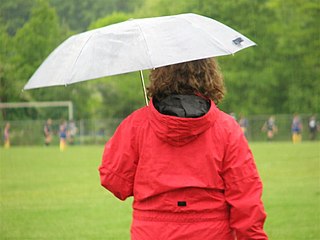 W
WThe phrase soccer mom broadly refers to a North American, middle-class, suburban, white woman who spends a significant amount of her time transporting her school-age children to youth sporting events or other activities, including—though not restricted to—soccer. It came into widespread use during the 1996 United States presidential election and over time has come to take on a pejorative meaning.
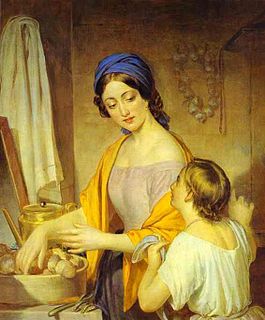 W
WA housewife is a woman whose work is running or managing her family's home—caring for her children; buying, cooking, and storing food for the family; buying goods that the family needs for everyday life; housekeeping, cleaning and maintaining the home; and making, buying and/or mending clothes for the family—and who is not employed outside the home. A housewife who has children may be called a stay-at-home mother or mom.
 W
WA housewife is a woman whose work is running or managing her family's home—caring for her children; buying, cooking, and storing food for the family; buying goods that the family needs for everyday life; housekeeping, cleaning and maintaining the home; and making, buying and/or mending clothes for the family—and who is not employed outside the home. A housewife who has children may be called a stay-at-home mother or mom.
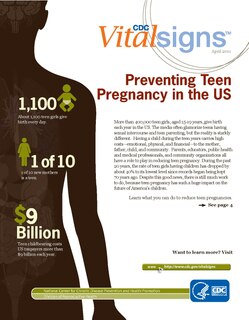 W
WTeenage pregnancy, also known as adolescent pregnancy, is pregnancy in a female under the age of 20. Pregnancy can occur with sexual intercourse after the start of ovulation, which can be before the first menstrual period (menarche) but usually occurs after the onset of periods. In well-nourished girls, the first period usually takes place around the age of 12 or 13.
 W
WThrough the Storm: A Real Story of Fame and Family in a Tabloid World is a memoir by Lynne Spears that she co-wrote with Lorilee Craker. The memoir is about Lynne's daughters: Britney and Jamie Lynn. The book was announced in 2007 and published on September 16, 2008, by Thomas Nelson, a Christian publisher.
 W
WThe Wall of Moms is a group, primarily of women who identify as mothers, who have demonstrated in George Floyd protests in Portland, Oregon, as well as other groups in U.S. cities including Chicago, Seattle, and Tampa, Florida. The group's first protest was attended by approximately 40 women; hundreds to thousands have participated since then.